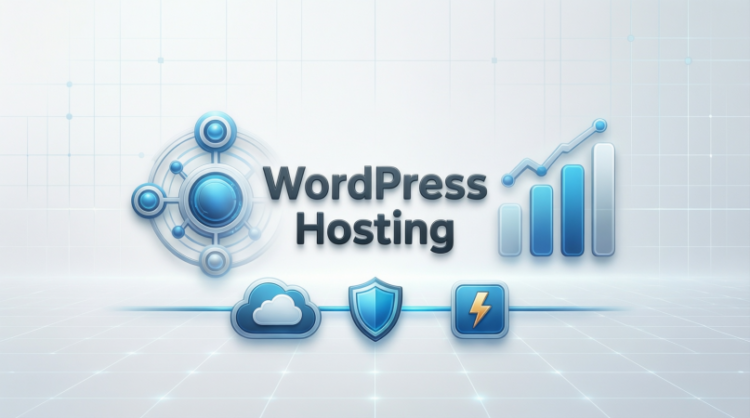
- Introduction to Business Insurance
- Types of Business Insurance Coverage
- Risks Faced by Small Businesses
- How to Choose the Right Business Insurance
- Understanding Business Liability Insurance
- Business Property Insurance Explained
- Workers’ Compensation Insurance for Your Business
- Importance of Regularly Reviewing Business Insurance Policies
- FAQ
Understanding the Basics of Business Insurance. Running a business can be a rewarding experience, but it’s not without risks. Accidents, natural disasters, and other unexpected events can cause financial hardship for small business owners. Fortunately, business insurance can help mitigate some of these risks and provide a safety net for your business.
Understanding the basics of business insurance is essential for any business owner. In this article, we will discuss the different types of business insurance, the risks faced by small businesses, how to choose the right insurance for your business, and the importance of regularly reviewing your business insurance policy.
Introduction to Business Insurance
Running a business can be a risky endeavor. Whether you’re an established business owner or just starting out, it’s essential to protect your company from potential financial losses. That’s where business insurance comes in. In this article, we’ll break down the basics of business insurance, including why you need it and the different types of coverage available.
What is Business Insurance?
Business insurance is a type of insurance that provides coverage for a company’s property, assets, employees, and operations. It aims to protect businesses from financial losses resulting from unexpected events, such as lawsuits, natural disasters, and accidents. Business insurance policies can vary in terms of coverage and cost, depending on the size and type of business.
Why Do You Need Business Insurance?
Business insurance is essential for any business owner because it can shield your company from potential financial losses. Without insurance, a single lawsuit, natural disaster or theft can wipe out your business. Additionally, some types of business insurance, such as workers’ compensation, are legally required in most states. Business insurance can also give your clients peace of mind, knowing that you have the financial means to compensate them in case of a loss.
Types of Business Insurance Coverage
There are several types of business insurance coverage available, which vary depending on the specific needs of your business.
General Liability Insurance
General liability insurance provides coverage for injuries, property damage, and lawsuits resulting from accidents, negligence, and other unexpected events. It can help cover the costs of legal fees, medical bills, and damages, up to the policy’s limits.
Professional Liability Insurance
Also known as errors and omissions insurance, professional liability insurance provides coverage for businesses that provide professional or specialized services, such as doctors, lawyers, and accountants. It can help cover the costs of lawsuits or damages resulting from errors or omissions in the services provided.
Property Insurance
Property insurance provides coverage for physical assets, such as buildings, equipment, and inventory. It can help cover the costs of damages resulting from theft, vandalism, fire, and other unexpected events.
Risks Faced by Small Businesses
Small businesses face numerous risks that can lead to significant financial losses. Here are some of the most common risks that small businesses face.
Natural Disasters
Natural disasters, such as hurricanes, floods, and earthquakes, can cause significant damage to a business’s property and operations. In some cases, the damage can be so severe that the business may be forced to close.
Employee Theft
Employee theft is another significant risk that small businesses face. Cash, inventory, and intellectual property are among the most commonly stolen items. Employee theft can lead to significant financial losses and damage to a business’s reputation.
Product Liability
Product liability refers to the legal responsibility of a business for any damage or injuries caused by their products. If a product is defective or causes harm to a customer, the business may be held liable for medical expenses, legal fees, and damages.
How to Choose the Right Business Insurance
Choosing the right business insurance can be a daunting task. Here are some tips to help you make an informed decision.
Assess Your Business Risks
Start by assessing the specific risks faced by your business. Identify potential sources of financial loss, such as natural disasters, lawsuits, or theft. This can help you determine the types of coverage you need.
Compare Insurance Policies
Once you’ve identified your business’s risks, compare insurance policies from multiple providers. Look at the coverage, cost, deductibles, and limits of each policy to determine which one offers the best value for your business.
Work with an Insurance Agent
Working with an experienced insurance agent can help you find the right coverage for your business. An agent can help you navigate the complex world of business insurance and ensure that you have the right coverage to protect your business from potential financial losses.
Understanding Business Liability Insurance
Running a business comes with a variety of risks, and liability is one of the biggest. Business Liability Insurance protects your business from legal claims resulting from accidents, injuries or property damage caused by your business. It’s an essential coverage that every business owner needs.
Types of Business Liability Insurance
There are various types of business liability insurance, but the two most common types are General Liability Insurance and Professional Liability Insurance. General Liability Insurance covers accidents or injuries that happen on your business premises or while you’re providing services to clients. Professional Liability Insurance, on the other hand, covers issues related to professional errors or negligence.
How Business Liability Insurance Protects Your Business
Business Liability Insurance protects your business from expensive legal fees, settlements, and judgments. Without it, these costs could quickly become unmanageable and compromise your business. With liability coverage, your insurance company pays these costs on your behalf, which can save your business from financial ruin.
Business Property Insurance Explained
Business Property Insurance is another vital coverage that every business owner should have. It protects your business property, assets, and equipment.
What Does Business Property Insurance Cover?
Business Property Insurance covers your business property in the event of theft, damage or loss. Property insurance policies can cover various types of property, including buildings, contents, inventory, equipment, and supplies.
Types of Business Property Insurance
There are various types of business property insurance policies, including Basic Form, Broad Form, and Special Form policies. Basic Form policies cover only specific risks, while Broad Form policies cover more risks. Special Form policies are the most comprehensive, and they cover all risks except those specifically excluded.
Workers’ Compensation Insurance for Your Business
If you have employees, you need Workers’ Compensation Insurance. It provides medical and wage benefits to employees who are injured or become ill on the job.
What is Workers’ Compensation Insurance?
Workers’ Compensation Insurance covers employees who get injured or become ill while performing their job duties. It provides medical benefits, disability benefits, and lost wages.
Why is Workers’ Compensation Insurance Important?
Workers’ Compensation Insurance protects your business from costly lawsuits and ensures that your employees are taken care of in case of an unfortunate event. It’s not only essential for the well-being of your employees, but it’s also the law in most states.
Importance of Regularly Reviewing Business Insurance Policies
Regularly reviewing your business insurance policies is essential to ensure that you have the proper coverage for your business.
Why You Need to Review Your Policy
Reviewing your policy can help you identify gaps in your coverage and ensure that your coverage is up-to-date. It also helps you avoid any surprises and ensures that you’re not underinsured or over-insured.
How Often Should You Review Your Policy?
Business owners should review their insurance policies at least once a year or whenever there is a significant change in their business operations or circumstances. This way, you can ensure that you have the right protection and adjust your coverage accordingly.In conclusion, business insurance is not something you should overlook as a business owner. It is crucial to protect your business from unexpected risks that can result in significant financial loss. By understanding the basics of business insurance, you can make informed decisions about the right coverage for your business’s unique needs. Regularly reviewing your policy and working with an insurance agent can further ensure that you have the right coverage to protect your business in the long run.
FAQ
What is business insurance?
Business insurance is a type of insurance that helps protect businesses from financial losses that can result from unexpected events such as accidents, natural disasters, or legal claims.
What types of business insurance do I need?
The types of business insurance you need depend on your business’s unique risks and needs. Some standard types of coverage include general liability insurance, property insurance, and professional liability insurance. It’s important to consult an insurance agent to help determine the best coverage for your business.
How much does business insurance cost?
The cost of business insurance varies depending on the type of coverage, industry, location, and other factors. It is best to obtain quotes from multiple insurers and compare costs and coverage to find the best insurance policy for your budget and needs.
When should I review my business insurance policy?
It’s essential to review your business insurance policy annually and whenever your business undergoes any significant changes, such as expansion or new employees. This helps ensure that your coverage remains up to date and adequate to protect your business from any new risks or liabilities.
Read More :





